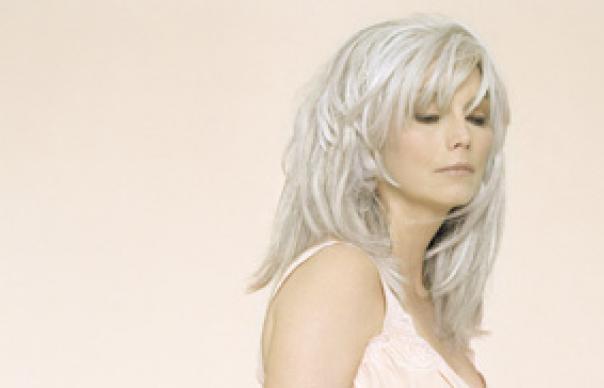Time is very much on Emmylou Harris’s mind. Now 61, for her follow-up to 2003’s Stumble Into Grace her themes are wasted years, love in vain, loss, death and, extraordinarily, what comes next. You could, as Bob Dylan did when discussing Time Out of Mind, define such concerns as "the dread realities of life". Or you could call it business as usual for a country record. Which, finally, is what All I Intended to Be turns out to be. Not insignificantly, Harris is working for the first time in 25 years with Brian Ahern, the producer behind her first 11 albums (and her ex-husband). Opening with a sound that recalls her recent work’s atmospherics, but then stripping back toward basics, the reunion heightens the sense of Harris looking back, considering the road she’s travelled. Split evenly between covers and originals, the album fuses the mature, potent songwriter who emerged on 2000’s Red Dirt Girl and Stumble… with the famously questing interpreter of other people’s work, shining her silver spotlight on neglected writers like Jack Wesley Routh, whose “Shores of White Sand” and “Beyond the Great Divide” bookend proceedings with an anthem and a spiritual. While Tracy Chapman (“All That You Have Is Your Soul”) and Merle Haggard (“Kern River”) may seem strange bedfellows, it's a collection as coherent as it is eclectic. On “How She Could Sing the Wildwood Flower”, meanwhile, a collaboration with Kate and Anna McGarrigle, she digs through the weeds into the real old, weird stuff. Strangest and most striking of all is another co-composition with the McGarrigles, “Sailing Round the Room," Harris singing out from the moment of death, her spirit lifting from her body, flying out the window to become part of nature. The remarkable thing is, there’s no trace of New-Age dippiness. A plain, mysterious, oddly happy little masterpiece, it’s the standout, but exemplifies the album. Harris is as proud, painful, and plaintive as ever here, dripping with life and dealing in dire certainties. But she never gets heavy about it, and in places sounds lighter than air. DAMIEN LOVE
Time is very much on Emmylou Harris’s mind. Now 61, for her follow-up to 2003’s Stumble Into Grace her themes are wasted years, love in vain, loss, death and, extraordinarily, what comes next.
You could, as Bob Dylan did when discussing Time Out of Mind, define such concerns as “the dread realities of life”. Or you could call it business as usual for a country record. Which, finally, is what All I Intended to Be turns out to be.
Not insignificantly, Harris is working for the first time in 25 years with Brian Ahern, the producer behind her first 11 albums (and her ex-husband).
Opening with a sound that recalls her recent work’s atmospherics, but then stripping back toward basics, the reunion heightens the sense of Harris looking back, considering the road she’s travelled.
Split evenly between covers and originals, the album fuses the mature, potent songwriter who emerged on 2000’s Red Dirt Girl and Stumble… with the famously questing interpreter of other people’s work, shining her silver spotlight on neglected writers like Jack Wesley Routh, whose “Shores of White Sand” and “Beyond the Great Divide” bookend proceedings with an anthem and a spiritual.
While Tracy Chapman (“All That You Have Is Your Soul”) and Merle Haggard (“Kern River”) may seem strange bedfellows, it’s a collection as coherent as it is eclectic. On “How She Could Sing the Wildwood Flower”, meanwhile, a collaboration with Kate and Anna McGarrigle, she digs through the weeds into the real old, weird stuff.
Strangest and most striking of all is another co-composition with the McGarrigles, “Sailing Round the Room,” Harris singing out from the moment of death, her spirit lifting from her body, flying out the window to become part of nature. The remarkable thing is, there’s no trace of New-Age dippiness. A plain, mysterious, oddly happy little masterpiece, it’s the standout, but exemplifies the album. Harris is as proud, painful, and plaintive as ever here, dripping with life and dealing in dire certainties. But she never gets heavy about it, and in places sounds lighter than air.
DAMIEN LOVE


